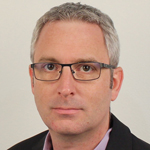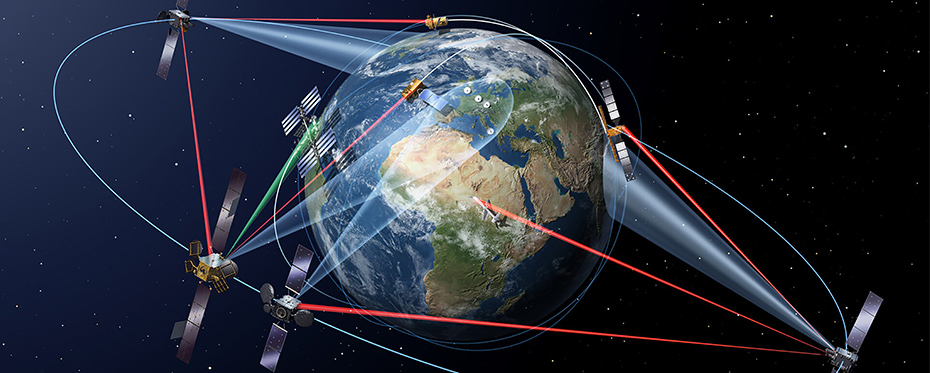The European Science Foundation: Forging funding strategies and scientific connections
It has never seemed more pertinent, taking into consideration the current global coronavirus pandemic, that scientists and scientific organisations need to communicate, implement research and work together effectually and efficiently.
Since its inception in 1974, the European Science Foundation (ESF) has supported over 2,000 programmes and networks, gathering more than 300,000 scientific stakeholders from 186 countries. Nowadays, it specialises in providing expert scientific support to groups and institutions across Europe, with the aim of increasing the quality and volume of effective science on the continent.
In this interview with Research Outreach, CEO Nicolas Walter told us more about the strategies and aims of the Foundation and what partnership opportunities it offers.

What are the main goals and strategies of the European Science Foundation (ESF) and how have these changed in recent years?
The ESF was created in 1974, almost ten years before the first European Commission’s ‘Framework Programme’ for research emerged. For more than four decades now, the ESF has been actively contributing to the development of the European Research Area, while adapting itself to the evolution of the European and global research landscape. The ESF has initiated many activities, programmes and networks and provides a fantastic infrastructure to facilitate research processes across the academic spectrum.
The ESF has initiated many activities, programmes and networks and provides a fantastic infrastructure to facilitate research processes.
The ESF provides support to programmatic processes implemented by research institutions, especially in the context of scientific assessment of research proposals submitted to competitive calls. In particular, the ESF provides independent assessment reports and sets up high-level review panels to help funding organisations make informed selection decisions.
The ESF also plays the role of catalyst for the research community; in the context of European funding, it brings its experience and expertise to consortia composed mainly of researchers and contributes to make proposals more competitive. Lastly, the organisation provides a forum to address specific science issues at the European level, for example in the fields of nuclear physics or open access publications.

Could you explain how you came to be involved with the organisation personally?
My background is in space study; I graduated from the International Space University in 2000. I was hired by the ESF as project assistant on a study for the European Space Agency. This contract was for four months, the first in a long series. Over the years I have been involved in many sides of the organisation and its activities, including as secretary of the works council for some years. I have also structured and developed the ESF Grant Evaluation activities since 2012. I took the position of Chief Executive in July 2019.
The ESF is a fantastic place to work, it is flexible, innovative and very efficient. This would not be possible without great staff. The ESF team is composed of 32 members of 16 different nationalities. I really feel honoured to work for such an organisation with such a team.
In 2017 you launched the expert division Science Connect. Which support services does it offer?
Science Connect supports institutions for the implementation of their research programmes. So far, these collaborations reside mainly in implementing the independent scientific assessment of research proposals submitted to funding organisations, both public and philanthropic. Scientific research is increasingly competitive, and the process of assessing proposals for projects is more complex than ever before. We support our partners in mobilising the right expertise that will allow them to make informed funding decisions.

In 2019 we were involved in 34 funding programmes supported by public research funding organisations (e.g. the Flemish Research Council FWO or the Shota Rustaveli National Research Science Foundation of Georgia) but also regional authorities (e.g. Région Grand Est in France), universities and philanthropic organisations. Altogether, these represented more than 4,300 research proposals and fellowship applications to be assessed by targeted reviewers.
Besides internal procedures and well-proven IT tools, efficiently processing such a high number of projects can only be done with the commitment and engagement of experts from Europe and all over the world. We have set up two colleges of experts – for referees and review panel members – that gather roughly 8,000 members who have agreed to collaborate with ESF in providing independent assessments.
You work with various high-level European funded projects like the Horizon 2020 programme. How exactly is the ESF involved and how does it cooperate with other institutions?
The ESF has strong competencies in science management, and this is very complementary to the scientific expertise present in European research labs and research groups. This winning combination allows us to efficiently split tasks within a consortium and has proven to be very effective in over 45 projects since 2013. We have a success rate of around 40% of all proposals submitted.
The ESF has developed a robust and versatile capacity to take on the administration of projects supported by Horizon 2020 (and previous Research&Innovation programmes). But the ESF’s added value goes much beyond ‘paperwork’. We contribute significantly to the technical execution of the projects by securing sound project management, stakeholder networking, foresight and mapping as well as outreach and communication activities for the projects we are involved in.
Our approach is therefore quite unique as we see our involvement in proposal writing as the beginning of a joint endeavor: if the project gets funded, then we are part of the team and we will actively contribute to its success. If the project is not supported, that’s life! We do not ask for any kind of compensation and we look forward to improving it.
You work with researchers to help optimise their grant proposals. How do you perceive the administrative process of grant application?
With the right experience and the right tools, the administrative process and baseline structure of Horizon 2020 grant applications can become quite mainstream and we master these elements well. It is crucial that researchers focus on the scientific excellence of the proposals, the implemented methodologies and the impact the project can have on the academic and scientific landscape as well as society at large.

The Horizon 2020 programme is extremely competitive; the proposals very often require a lot of effort and the involvement of increasing numbers of consortium partners. Only outstanding proposals are going to get through and eventually get funded. I think that the main challenge is to identify the key element(s) of novelty (a proposal has to generate enthusiasm) while being fully aligned with the call expectations.
The ESF has strong competencies in science management, and this is very complementary to the scientific expertise present in European research labs.
More and more, the project teams should consider their proposals in light of the principles for Responsible Research and Innovation (RRI) and ensure that these are fully embedded in their project. Ethics, gender equality, open access or public engagement shouldn’t be considered as boxes to tick. Rather, integrating RRI in the projects will help build trust and ensure science contributes to societal challenges.
One of the ESF’s focal points is space science. What does the work of the European Space Sciences Committee (ESSC) involve?
The ESSC was set up in 1974 as a sister body to the Space Studies Board of the US National Academies of Sciences, Engineering and Medicine. This Committee gathers high-level researchers from all domains of space sciences, from astronomy to research in microgravity and from planetary sciences to earth sciences. The ESSC regularly provides independent recommendations to major European and national institutions, including the European Commission and the European Space Agency on scientific priorities and programme implementation. This requires involving the right experts as well as staying constantly updated with what is going on in Europe and beyond (the ESSC has strong links with the USA, Russia, Japan and China). The ESSC, therefore, represents a focal point for bottom-up strategic advice in European space sciences, and it also represents a voice for European scientists in many instances, including in the European Space Agency Council of Ministers.
Besides the transversal expert voice provided by the ESSC, the ESF also hosts the Europlanet Society which gathers European planetary scientists and provides them with a forum in which they can discuss, exchange and develop collaborations. We also host the European Astrobiology Institute that gathers 27 European research institutions and intends to develop this new multidisciplinary research field.

What do you think are the biggest challenges facing the European and global research landscape?
The current COVID-19 outbreak demonstrates the need to communicate science while maintaining public trust; the former cannot be efficient without the latter. For weeks now and in many instances, we have witnessed the clash of the scientific sphere with the political sphere and those two do not work with the same set of rules or at the same pace.
It seems critical to communicate to the general public that the debate of ideas is intrinsically embedded in research processes – this is actually what makes science progress. Very often in science things are not ‘right’ or ‘wrong’ in the first instance, and the scientific community needs to raise awareness regarding the nature of the scientific knowledge in order to prevent science being used only as an excuse in political decisions.